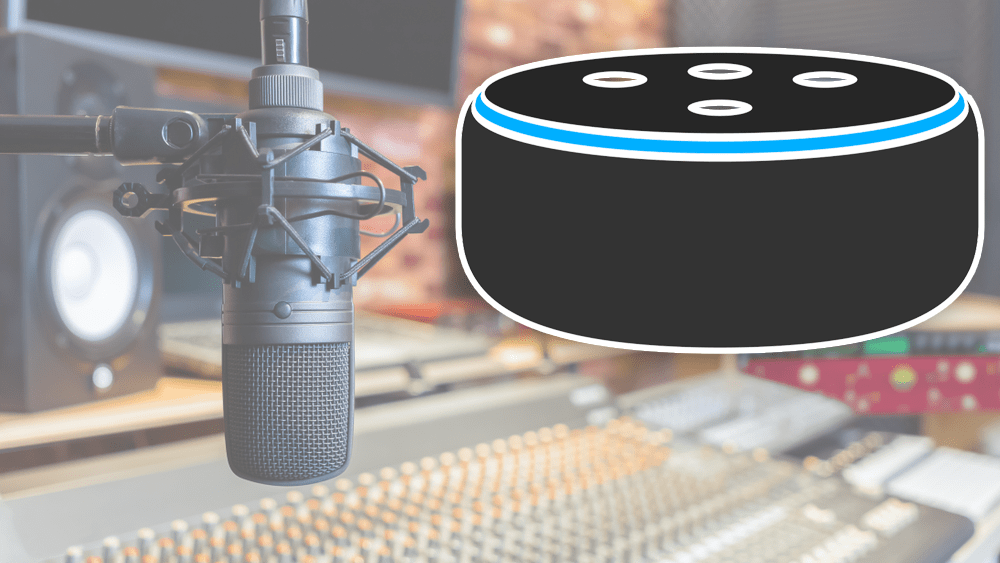"Hey Alexa..."
From out of nowhere...
Smart Speakers became the the newest gadget that everyone didn’t know they needed….until they had one. (I’m a convert myself, I went from zero to SIX smart speakers all over my house and garage).
According to Voicebot.ai , 87.7 million U.S. adults were using smart speakers as of January 2020. This means the installed base of U.S. smart speaker users is up 32% over January 2019 and is 85% higher than January 2018.
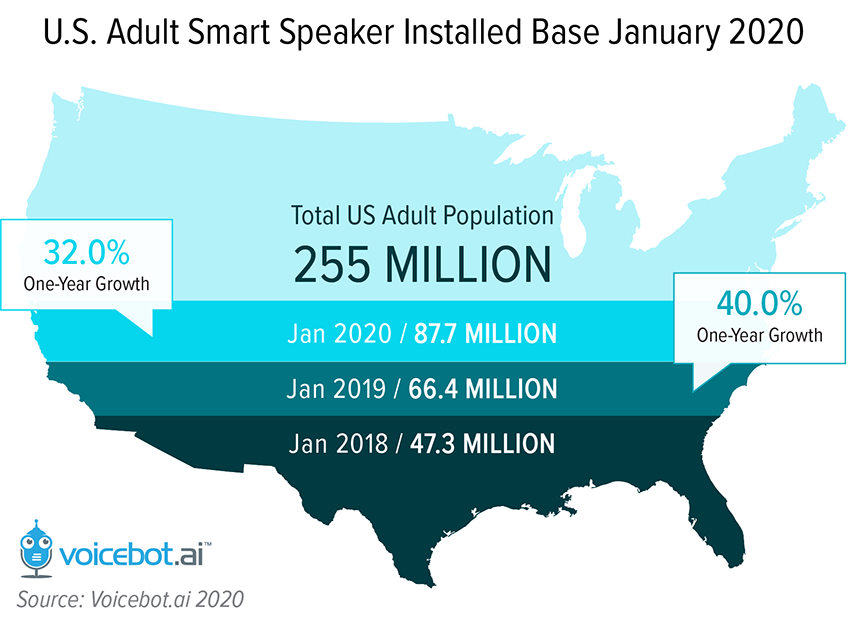
The Smart Audio Report, conducted by NPR and Edison Research, found that 70 percent of people are consuming more audio since getting their speaker. (You can download the full report here)
So the number of people using smart speakers is growing super fast and the number of people who use those speaker to listen to audio is massive. Think radio has an opportunity here?
First: How are Smart Speakers Used?
In order to be successful with Smart Speakers, we need to understand how they are used.
Back in the days where everyone saw in black and white and wore really weird clothes, radio was the centerpiece of the home. Everyone gathered round that glowing piece of furniture and listened to music, stories and the news.
Television took away radio’s dominance in the home, but with the rise of Smart Speakers, radio has another weapon in their audio arsenal to get those ears back. Let’s take a look at how people are using Smart Speakers in the home:
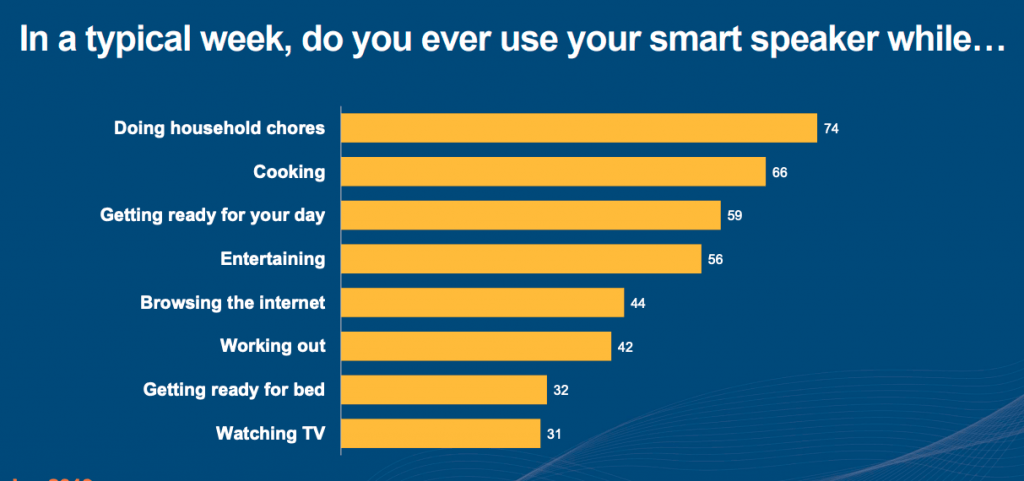
That’s a pretty impressive list of activities that people are using Smart Speakers with. It used to be you turned the TV on for “background noise” or to “catch up on the news” while you were getting ready for work or cooking the kids dinner. Now, people are putting the remote down and declaring “Hey Alexa…”
If you didn’t think Radio had a massive foot in the door to your audience’s homes with Voice Skills, then hold on to your socks, because the next section will knock them off.
What Are People Asking of Their Smart Speakers?
OK, we know that people are using their Smart Speakers in conjunction with just about every activity within their home, but what are they asking of their newfound audio friends?
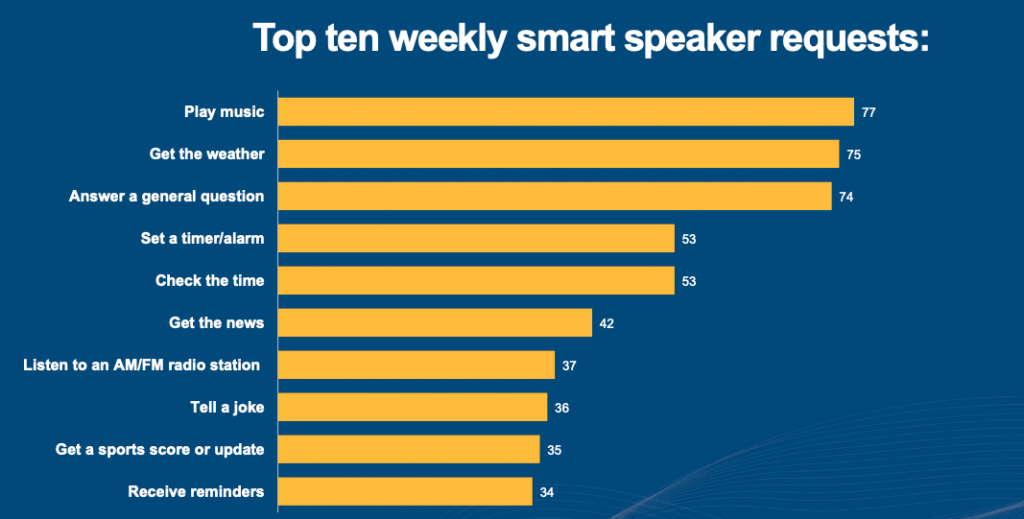

Let’s pick out a few super pertinent stats from that study:
- 77% of respondents listen to music.
- 42% use it to get the news
- 37% listen to an AM/FM radio station
- 35% gets sports scores
Those are some pretty telling numbers that should have radio leaning forward to learn more. But wait, there’s more!
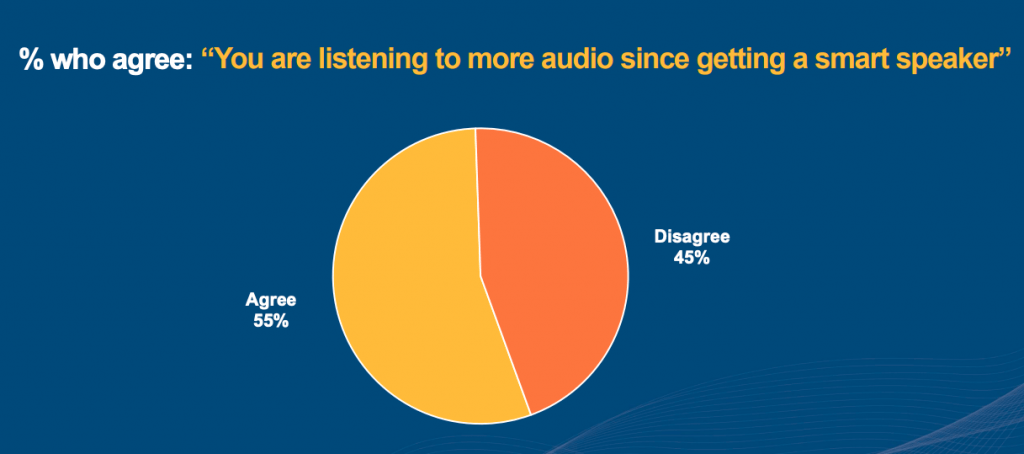
Now come on! If that doesn’t peak your interest then it is quite possible you refer to your website as “the internets”.
With massive penetration and audio activity being a one-to-one match for radio, why would ANY station not have an Audio Skill?
But My Station Already Plays on Smart Speakers Without a Skill...
If you don’t have a Voice Skill and you ask Alexa to play your station right now, there’s a very good chance you are going to hear your stream. Great, right?
NO

When a third party service controls your stream:
- You don't control your advertising
- You don't control your messaging
- You don't control your brand
Take Control of YOUR BRAND on Smart Speakers
If you control your Smart Speaker skill, the world opens up for a lot of revenue, brand-building and the ability to give those personal touches for your audience.
Using our own OneCMS Voice Skill Manager as an example, Here’s just some of the cool stuff you can do with a OneCMS skill that you won’t get via the Corporate Streamers:
- Play your station’s native Live stream.
- Read your website’s top Headlines with the option to read an entire story.
- Play your website’s Podcasts by name (and include pre-roll!).
- Monetize! Have a Pre-Roll Advertisement that plays when users make a request of the Alexa Skill (you can change the frequency of how often the ad plays).
- Custom greetings and goodbye messages.
- Get Advanced Statistics you need to craft your content towards this new medium.
Stake a Claim on Your Name

Remember way back when you were getting the domain name for your station website? Were you flustered that your station name or call letters were already taken? (If you weren’t, consider yourself lucky).
Much how websites need to be unique, Amazon Alexa works the same way. You ask for content or stations by name. The voice service needs to assign a name to a particular station…and its not like a Smart Speaker gives you the top ten search results. It only gives your audience the top search result for what they are looking for.
If you are getting in on the Smart Speaker craze, keep in mind that invocation names, (that’s the domain names of the voice web), are first come, first serve. That is both an opportunity and a risk for every radio station.
As of now, if you don’t have your own Alexa skill, TuneIn owns your name on Alexa. So get off your duff and claim your name as soon as possible. It is important for your local listening audience and can also help expose your station to new listeners across the country.
Educate Your Audience
Lastly, make sure you “train” your audience by running spots or bumpers with your invocation name and continue that education on your website and social channels. You want your invocation name to be on the tip of your listener’s tongue.
Your audience is talking, make sure you are talking back!

